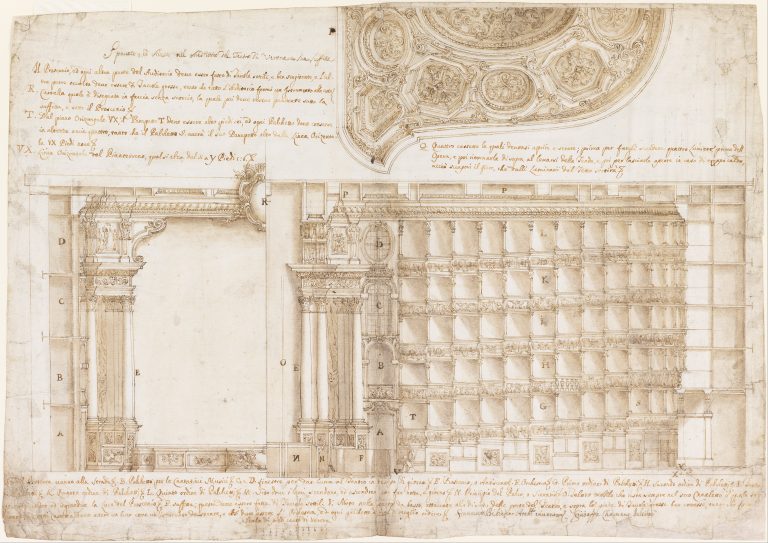Francesco Galli, called Francesco da Bibiena (or da Bibbiena), a supporter of the theatrical Galli da Bibiena associates and younger brother of Ferdinando Galli, was born at Bologna in 1659. He first studied below Lorenzo Pasinelli; but he was afterwards instructed in the bookish of Carlo Cignani. His knowledge of architecture and slant was considerable; but he excelled in figures. Francesco worked at Piacenza, Parma, and Rome, and after that became ducal architect at Mantua. After a stay in Genoa and Naples he was called to Vienna, where he built a large theatre. He worked successively for the Emperors Leopold I and Joseph I, and was invited to Madrid by Philip V, who appointed him his principal architect. He died in 1739.
Francesco was known for his theatrical achievements in scenic design. He was the first fanatic of the Bibiena family to construct theatres as with ease as to design sets. In 1700 he certainly renovated the theatre in Hofburg, Vienna, for Emperor Leopold I. The large theatre was known as the Große Komödiensaal (“Grand Hall of Comedies”), which well along became the Court Theater (Burgtheater). The opera house, however, burned alongside in 1747. The Hoftheater’s architecture greatly influenced theatre design in Germany and Austria throughout the first half of the eighteenth century. After a quick stay in Italy and in Lorraine, he was invited by Emperor Joseph I, back to the Hofburg, to feign as the “First Theatrical Engineer” and as a scene-painter/decorator from 1709-1712. He was plus the architect of the good theatre at Nancy, France; of the Teatro Filarmonico at Verona, which some called the finest theatre in Italy; and of the Teatro Alibert in Rome. In 1726, Francesco returned to Bologna, where he directed the Clementine Academy.
Although his father, Giovanni Galli da Bibiena, had a distinguished career, it was Francesco and his older brother Ferdinando that acknowledged the family’s artistic reputation and its fortune.
What do you think of the works of Francesco Galli Bibiena?
Use the form below to say your opinion about Francesco Galli Bibiena. All opinions are welcome!
